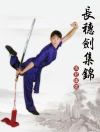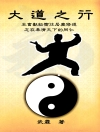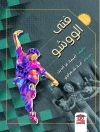Profound – In Depth – Taijiquan Theory
In the last seven centuries, many songs and poems have been composed about Taijiquan. These have played a major role in preserving the knowledge and wisdom of the masters, although in many cases, the identity of the authors and the dates of origin have been lost.
As lifelong pursuit, Dr. Yang, Jwing-Ming has translated many of these documents and according to him, believes many are incomplete for reasons relating to: forgotten oral secrets, the original authors personal understanding being too narrowly focused, and many documents that have gone missing could help unify Taijiquan theory.
In response, his book Taijiquan Theory of Dr. Yang, Jwing-Ming is an attempt to join the various theories on Taijiquan in one complete text.
This book is structured with treaties, songs, and poems, followed by the original Chinese text and interpretations of the passages.
Contents include
- Regulating the body, breath, mind, Qi & spirit
- Analysis of Jin, pushing hands and sparring
- Taijiquan’s long range and short range fighting strategies
- The relationship of Jin and Qi
- The unification of the internal Qi and external physical manifestations of Qi
‘Based upon my personal background and understanding, I have tried my best to compile the Taijiquan Theory and practice concepts in this book. I have attempted to make this effort as complete as possible”. —Dr. Yang, Jwing-Ming
This second edition includes
- Updated pīnyīn that includes diacritical tonal marks (for proper pronunciation of Chinese words).
- Updated Chinese text character font (providing better readability).
Cuprins
Foreword by Grandmaster Li, Mao-Ching
Foreword by Grandmaster Abraham Liu
Preface
Part I. General Concepts of Taijiquan
- About Taiji
- The Meaning of Taiji in Taijiquan
- Taijiquan Yin-Yang Illustrations
- Yin-Yang Theory of Taijiquan
- Yin-Yang Theory of Taiji’s Xin and Yi
- Yin-Yang Theory of Movement and Stillness in Taijiquan
- Lao Zi’s Thesis of Using the Soft to Subdue the Hard
- General Theory of Taijiquan Thirteen Postures
- Practicing Procedures of Taijiquan
- Three Heights and Three Postures of Taijiquan
- Yin-Yang Practicing Theory of Taijiquan
- Theory of Taijiquan and Health
- About Qi Primary Channels, Secondary Channels, Vessels, and Dan Tian
- Thesis of Taijiquan’s Muscle/Tendon Changing and Marrow/Brain Washing
Part II. About Regulating the Body
- Importance of Regulating the Body
- Stationary Postures (The Postures of Central Equilibrium)
- Moving Postures (The Postures of Four Directions)
Part III. About Regulating the Breathing
- Secret of Regulating the Breathing
- Theory of Normal and Reversed Abdominal Breathing
- Secret of Embryonic Breathing (Wuji Breathing, Girdle Vessel Breathing)
- Secret Knacks of Regulating the Breathing
Part IV. About Regulating the Emotional Mind
- Importance of Regulating the Emotional Mind
- Thesis of Monkey Xin and Horse Yi
- Thesis of Mutual Dependence of Emotional Mind and Breathing
- Thesis of Comprehending the Human Nature through Taijiquan
Part V. About Regulating the Qi
- Theory of Using the Yi to lead the Qi
- Secret of Small Circulation
- Secret of Grand Circulation
- Yin-Yang Taiji Ball Qigong
Part VI. About Regulating the Spirit
- Returning the Essence to the Brain for Nourishing Through Marrow/Brain Washing
- Thesis of the Unification of Spirit and Qi
- Thesis of the Mutual Dependence of Spirit and Breathing
- Thesis of Wuji Spirit
- Thesis of the Spirit of No Spirit
Part VII. About Jin
- Thesis of Jin
- Theory of Internal Jin
- Theory of External Jin
- Theory of Hard Jin, Soft-Hard Jin, and Soft Jin
- Theory of Long Jin and Short Jin
- Secret of Jin
- Theory of Storing Jin
- Secret of Hen and Ha, Two Qi’s
Part VIII. About Pushing Hands
- Practicing Methods of the Four Directions and Four Corners (Eight Doors, Eight Trigrams)
- Practicing Methods of the Five Steppings (Five Elements)
- Practicing Methods of Central Equilibrium
- Method of Rooting
- Method of Uprooting
- Practicing Methods for Listening, Following, Attaching, and Adhering
- The Practice of Yin-Yang Taiji Circle
- Six Turning Secrets of Taijiquan
Part IX. About Sparring
- Taijiquan’s Kicking, Striking, Wrestling, and Na
- Taijiquan’s Attaching and Adhering
- Taijiquan’s Kicking
- Taijiquan’s Striking (Cavity Press)
- Taijiquan’s Wrestling
- Taijiquan’s Na
- Taijiquan’s Long and Short Fighting Strategies
- Strategy of Attacking Timing
- Fighting Strategy of Sun Zi
- Strategy of Hard and Soft
- Strategy of Fast and Slow
- Strategy of Advancing and Retreating
- Theory of the Fight of No Fight
Part X. Conclusion
- Theory of Reaching Enlightenment
- Discussing the Song of Taijiquan’s Real Meaning
References
Appendix A. Translation and Glossary of Chinese Terms
Acknowledgments
About the Author
Index
Despre autor
Dr. Yang, Jwing-Ming is a world-renowned author, scholar, and teacher of qigong and Chinese martial arts. He has been involved in martial arts since 1961 and maintains over 55 schools in 18 countries. Dr. Yang’s writing and teaching include the subjects of qigong, kung fu, tai chi chuan, massage, and meditation. He is the author of over 35 books and 80 videos. Dr. Yang, Jwing-Ming teaches and resides in Mc Kinleyville, California.









